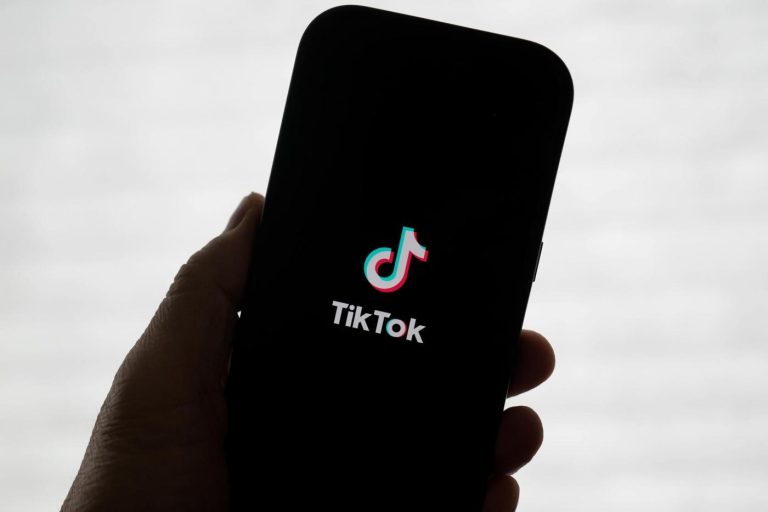For people avoiding caffeine, decaf coffee seems like a harmless option. But some health advocacy groups that argue otherwise are petitioning the US Food and Drug Administration to ban a key chemical involved in the decaffeination process due to cancer concerns.
That chemical is methylene chloride, a colorless liquid that’s used in certain industrial processes, “including paint stripping, pharmaceutical manufacturing, paint remover manufacturing, and metal cleaning and degreasing,” according to the Occupational Safety and Health Administration.
Methylene chloride has long been known to be a carcinogen, designated as such by the National Institutes of Health’s National Toxicology Program, the Environmental Protection Agency and the World Health Organization, said Dr. Maria Doa, senior director of chemical policy for the Environmental Defense Fund, one of five groups and individuals behind two food and color additive petitions sent to the FDA in November.
The FDA filed the petitions to its docket for consideration on December 21 and accepted public comments on the filing notice through March 11.
RELATED: Weight loss drug Zepbound may help people with obstructive sleep apnea, drugmaker says
“In addition to being carcinogenic, methylene chloride can cause other health harms, such as liver toxicity and at higher exposures neurological effects, and in some cases death,” Doa added via email. These risks are in the context of external acute exposure to high levels of the chemical, or ingestion of the chemical on its own, according to the US Centers for Disease Control and Prevention.
The toxicity of the chemical led the EPA to ban its sale as a paint stripper in 2019; in 2023 the agency proposed a ban of its sale for other consumer uses and many industrial and commercial uses, Doa said. But food uses regulated by the FDA under the Federal Food, Drug and Cosmetic Act remain. (The state assembly in California — which has one of the largest economies in the world, often influencing the rest of the nation — recently introduced a bill seeking to ban using methylene chloride in the decaffeination process.)
The Environmental Defense Fund and its co-petitioners argue that by allowing methylene chloride in food, the FDA “has been disregarding” a 66-year-old addition to the federal act called the Delaney Clause, which requires the FDA to ban food additives proven to cause or induce cancer when ingested by humans or animals.
“Thus, these chemicals categorically cannot and should not be deemed as safe,” Doa said.
The FDA has said it is currently reviewing the petitions but does not comment on them while they are under review, an FDA spokesperson said in a statement.
Here’s what experts and the FDA say about this clause in the modern context, and what you should know about the safety of decaf coffee.
What we know about methylene chloride
The FDA has one regulation allowing for the use of methylene chloride as a solvent to decaffeinate coffee, stipulating that “the residues of methylene chloride must not exceed 10 parts per million (0.001%) in decaffeinated roasted coffee and in decaffeinated soluble coffee extract (instant coffee).”
“While methylene chloride may be indirectly involved in food processing, such as in the decaffeination of coffee beans, residue limits have been set to limit exposure,” an FDA spokesperson said via email. “Any food product that contains residues of methylene chloride above the established limits are not permitted for sale or consumption.”
National Coffee Association President and CEO William Murray said banning European Method decaf coffee — the type that uses methylene chloride — “would defy science and harm American’s health.”
“There is no evidence that European Method decaf presents any risk,” he added via email. “Indeed, the overwhelming weight of independent scientific evidence shows that drinking European Method decaf, like all coffee, is associated with decreased risk of multiple cancers and with other significant health benefits.”
But the FDA’s last decision on the chemical’s use for coffee “is decades old and clearly outdated,” Doa said.
“There is more information on the toxicity of methylene chloride and the levels at which it causes this toxicity,” she added. “This information as well as more recent information on how much coffee we drink — just consider the different sizes now available at coffee shops — are key to developing a current picture of how much of a risk the residual methylene chloride could present.”
These days, many people consume portions of beverages or food larger than the smaller standard sizes of decades ago, said Monique Richard, a registered dietitian nutritionist and owner of Nutrition-In-Sight, a private practice in Tennessee. While a standard cup of coffee was 5 or 8 ounces at one point, she noted that the smallest size at your local coffee shop today is likely 12 ounces.
“But there still isn’t a lot of clear or conclusive research that ingesting residual levels in coffee specifically will cause cancer or other problems,” said Richard, who wasn’t involved in the petitions.
However, “we certainly want to be obviously proactive and be aware of some of these things,” Richard added. “We are exposed to so many things now that anything we can control or ask questions about and decrease that exposure that may be harmful is going to be advantageous.”
RELATED: Why are more young adults getting colorectal cancer? Researcher is trying to find out
The research on what the human body can handle in terms of toxic load is evolving. Researchers have been learning more about genetic disposition and gene expression, which can provide information about what cells can tolerate in terms of an assault on the body. “So it may be less about what’s actually in your coffee, but what other factors are affecting your body?” Richard said. “Even a ‘minute’ amount could be significantly destructive on a cellular level, over time,” she added.
Methylene chloride has long been commonly used in the decaf industry, but some companies have added alternative methods to their toolbox or suspended use entirely.
Related Articles
Taste-Off: The best supermarket prosciutto — and the ones not worth the price
How much for a jar of Meghan Markle’s limited edition strawberry jam?
Why tortillas sold in California may be forced to add a new ingredient
Abbott Laboratories to close Bay Area site; almost 200 jobs to be cut
Pythons are eating the Everglades. Could eating them instead help fight climate change?
Starbucks, for example, has three ways to remove caffeine: the natural decaffeination process, which uses liquid carbon dioxide forced into stainless steel tanks at high pressure, drawing out and dissolving the caffeine. Then there is the Swiss Water Process, which decaffeinates the beans by soaking them in warm water. That warm water takes on the flavor of the beans, then is run through an activated charcoal filter that grabs the caffeine molecules. Then the beans are soaked in that water to reintroduce flavor.
Starbucks says its direct contact method is the most commonly used process, which involves a solvent that, along with other liquids used, is ultimately evaporated by the beans being steamed, washed and roasted at over 400 degrees Fahrenheit (204 degrees Celsius).
CNN has reached out to Starbucks to confirm what that solvent is, as well as to Dunkin’ to determine what its decaffeination process involves.
The Clean Label Project, an organization that tests consumer products for hidden industrial and environmental contaminants, has detected methylene chloride in seven of 17 brands of coffee tested, according to the petition.
The levels of methylene chloride found were very low in most of those seven samples, NCA said — while the FDA’s safe limit is 10 parts per million, one brand had 1.4 parts per million, another contained 3.5 parts per million, and another had 8.9 parts per million.
Doa said the petitioners are of the belief that “although the levels of methylene chloride may generally be minimal, it is completely unnecessary because safer processes for decaffeinating coffee are available and being used,” Doa said.
She added that in addition to consumer exposure at low levels, workers exposed to methylene chloride in factories are subject to greater, unnecessary risks.She
What you can do now
Whether or not the FDA eventually bans methylene chloride is a decision that could take years.
But if you want to avoid potential methylene chloride exposure, when you’re buying decaf coffee, look for product packaging with labels such as solvent-free, Swiss Water processed or certified organic, Doa said.
“As a consumer, always do your research,” Richard said. “Look up what you can about the company. Ask those questions if you can get on a customer hotline on their website.”
Also consider how often you’re drinking decaf coffee, how much and why, she added.
“If you’re concerned about that and you just are confused, there’s lots of substitutes that are caffeine-free,” Richard said. These include beverages made from chicory root, figs and barley, dandelion root, mushroom elixirs, cacao, rooibos and yerba maté.
The-CNN-Wire
& © 2024 Cable News Network, Inc., a Warner Bros. Discovery Company. All rights reserved.












